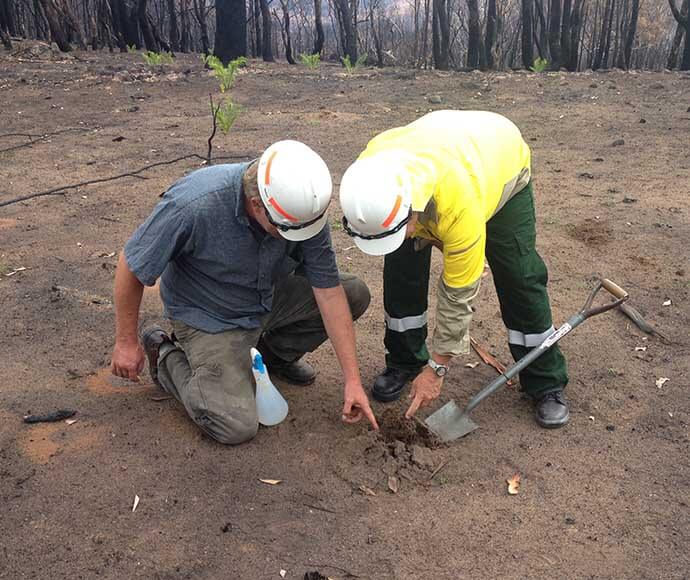To better understand the complex nature of fire and how it interacts with climate change, biodiversity, fragmentation of natural landscapes, urbanisation, weeds and pest animals, the Department of Climate Change, Energy, the Environment and Water engages in and fosters scientific research.
This research also guides the department's fire management activities to ensure that the fire regimes in native vegetation are appropriate for the long-term persistence of ecological communities, species and populations of native plants and animals, the protection and conservation of cultural heritage, and for people's safety and enjoyment. Within the department, the Fire and Cultural Science Team delivers science informed by cultural and ecological knowledge to improve fire management and sustain Country.
Fire research is delivered by our scientists and external research partners, in line with the Scientific Rigour Position Statement [PDF 208KB] and the 2017 review of bushfire research. This ensures our research meets globally accepted standards for scientific rigour from start to finish, providing robust scientific evidence to support management decisions.
The department currently supports fire research through the following main avenues:
- specialist fire ecologists and researchers within Fire and Cultural Science, including the Applied Bushfire Science Program
- the NSW Bushfire Risk Management Research Hub
- as a member of Natural Hazards Research Australia
- the Saving our Species program
- various fire research projects carried out by other parts of the department
- cooperative projects with, and logistical support to, universities and other institutions undertaking bushfire-related research.

Monitoring fire recovery in Warrumbungle National Park